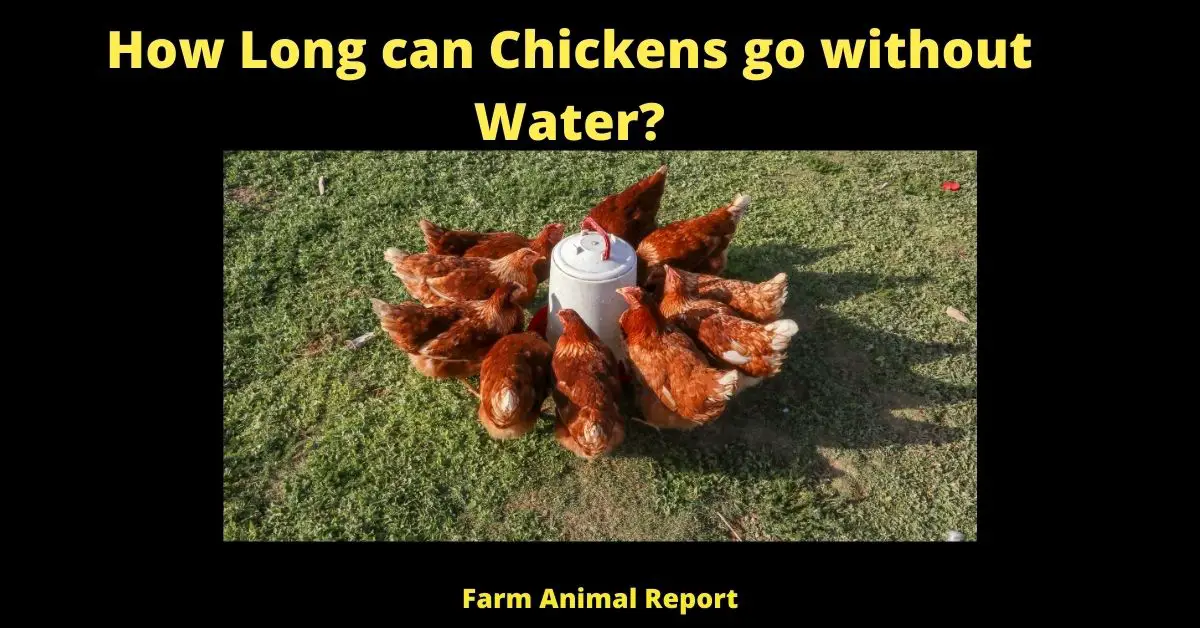48 Hours – The length of time that a chicken can go without water varies depending on the breed and climate. In general, chickens in cold climates will survive for 48 hours while those living through hot weather have an average life expectancy of around 12-24 hours if they do not have access to clean drinking water
How Long can Chickens go without Water?
How long can chickens go without water? This is a question that many people have asked, and the answer may surprise you. Chickens can actually go without water for quite some time, as long as they have access to other sources of hydration. In this blog post, we will discuss how long chickens can go without water, as well as the importance of hydration for these animals. How Long can Chickens go without Water?
Taking care of Poultry is a 7 Day, 52 Weeks year obligation. They are wonderful animals and provide us with, eggs, meat, food for our families, and to many a supplemental income. They need daily care to provide shelter, Food, Water, and care.
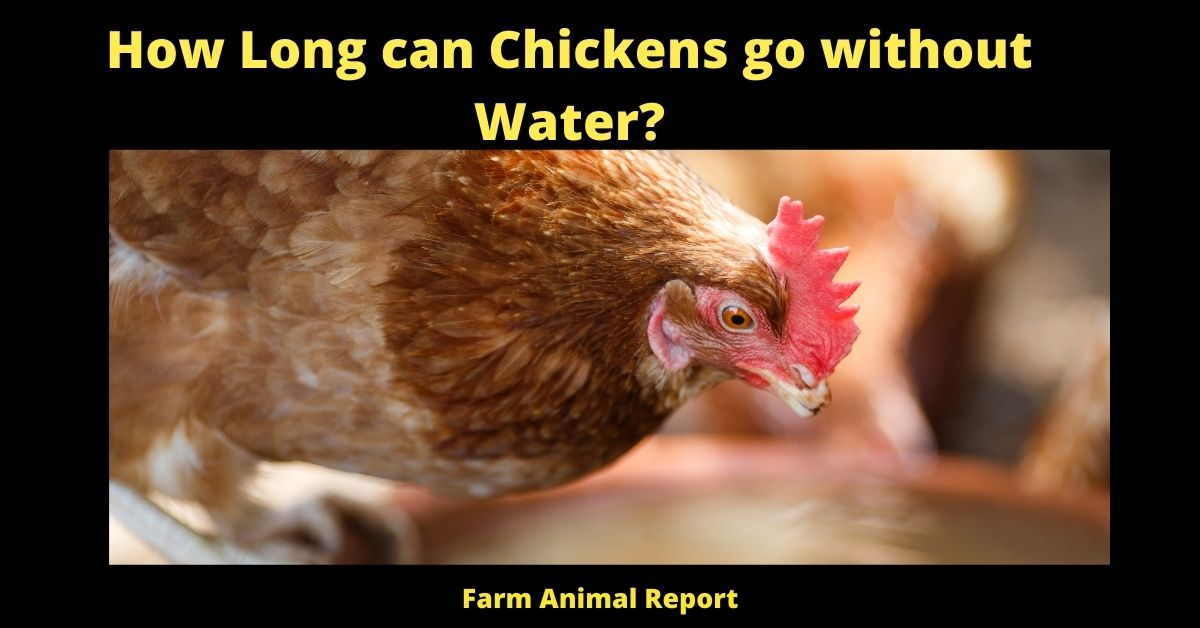
How to avoid my Chickens Running out of Water? (Prevention)
Some of the things you can implement to prevent your chickens from running out of water are:
• Making sure that your chicken coop has proper ventilation to avoid the formation of condensation.
Check Out Amazon for Educational Resources for Breeding Chickens
• Placing your water bottles in a shady spot to keep them cool.
• Adding ice cubes to the water to help keep it cool.
• Changing the water daily to ensure that it is fresh.
What are the Problems with Chickens Running out of Water?
If chickens do not have access to clean drinking water, they will quickly become dehydrated. Dehydration can lead to a number of health problems, including heatstroke, weight loss, and even death. In addition, dehydration can also make chickens more susceptible to disease and infection. Jump to 12 Ways to Make Money by Chicken Farming **CHARTS**
What are the Symptoms of Chicken Dehydration?
Some of the symptoms of dehydration in chickens include:
• Lethargy
• Decreased appetite
• Pale combs and wattles
• Dry, flaky skin
• Sunken eyes
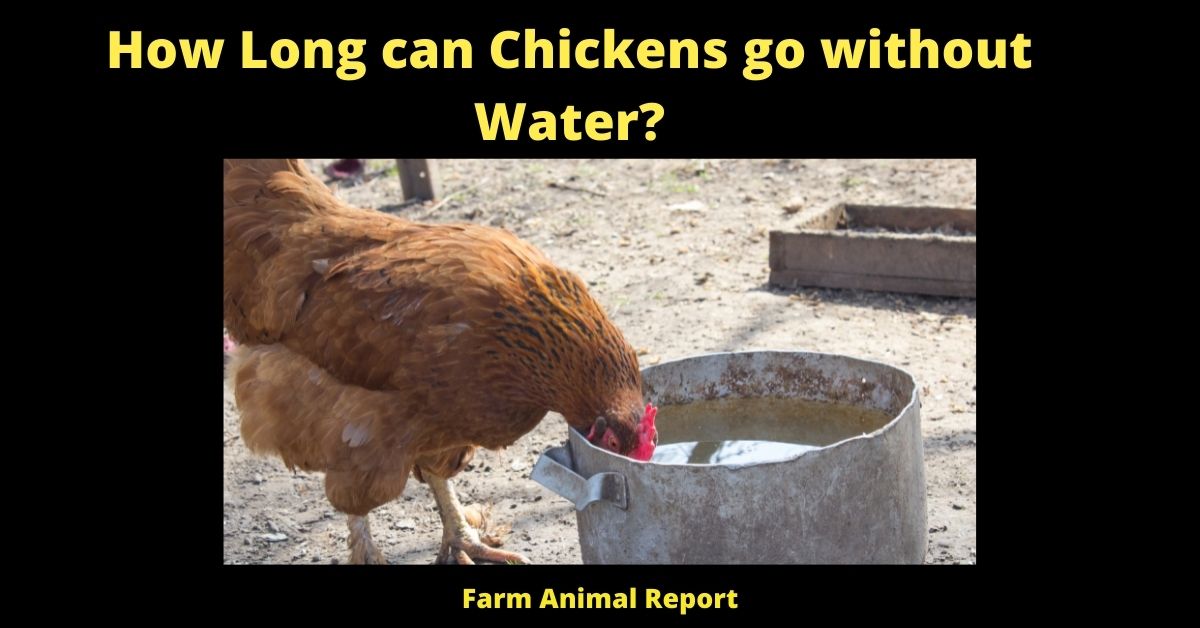
What are the symptoms of Heat Stroke in Chickens?
Heatstroke is a serious condition that can occur when chickens are exposed to high temperatures without access to water. Some of the symptoms of heatstroke in chickens include:
• panting
• increased heart rate
• difficulty breathing
• weakness
• muscle tremors
How to Revive a Dehydrated Chicken
If you suspect that your chicken is dehydrated, it is important to take action immediately. Some of the things you can do to revive a dehydrated chicken include:
• Offering the chicken cool water to drink.
• Mist the chicken with cool water.
• Place the chicken in a cool, shady area.
If your chicken does not improve within 24 hours, it is important to seek veterinary care.
What to do if my Chickens Run Out of water?
If your chickens run out of water, it is important to take action immediately. Some of the things you can do to hydrate your chickens include:
• Offering them cool water to drink.
• Mist them with cool water.
• Place them in a cool, shady area.
Do Chickens Need water at night?
Chickens do not need to drink water at night, as they will get all the hydration they need from their food. However, if you are concerned that your chickens are not getting enough water during the day, you can offer them a small cup of water before bedtime.
How do I make sure my chickens have water in Freezing Temperatures?
In winter you can use a water heater designed for chickens. You can also use a regular household immersion water heater, but be sure it’s not one that has been used with chemicals, as these can be harmful to your chickens.
If you don’t have an immersion water heater, you can place a ceramic bowl or glass jar filled with hot water in the chicken coop. The bowl will help to keep the water from freezing and the chickens will peck at the ice to get to the water.
You should also make sure that your chicken coop is well insulated and that there is plenty of ventilation. A chicken coop that is too warm can cause respiratory problems in your chickens.
Ventilation is important because it helps to remove moisture from the air and prevents the build-up of ammonia from the chicken’s droppings.
It’s also a good idea to have a backup plan for water in case your primary source freezes. This could be a small pond or container that you can fill with water and place in the coop.
If you live in an area where power outages are common, it’s also a good idea to have a generator on hand to power the water heater in case of an outage. Chickens can go without food for several days, but they will only survive without water for about two days. So, it’s important to make sure they always have access to fresh, clean water.
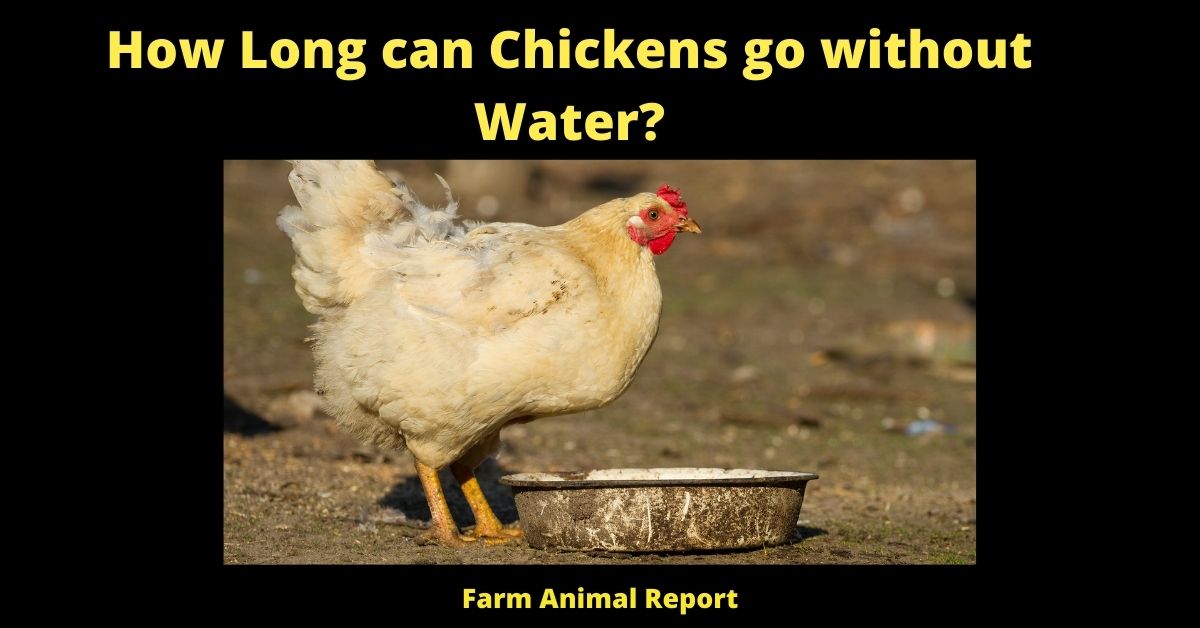
How often should I change the water?
You should change the chicken’s water when it gets dirty. A good rule of thumb is to change it every day or two. If you live in a hot climate, you may need to change it more often. Reasons that create problems with dirty feces contaminated water are:
- Crowding – more chickens in the same space mean more waste and contaminated water.
- Poor ventilation – a chicken coop that is too warm can cause respiratory problems in your chickens and also creates dirty, moist conditions perfect for bacteria to grow.
- Not enough clean water – if there isn’t enough clean water available, the chickens will drink less and become dehydrated. This can lead to health problems such as heat stroke.
So, make sure to change the water when it gets dirty and keep an eye on the temperature of the coop to ensure your chickens stay healthy and hydrated. Thanks for reading!
Will Chickens eat snow for water?
Yes, chickens will eat snow for water if they are dehydrated. However, it is important to make sure that the snow is fresh and clean, as dirty snow can contain harmful bacteria.
Chickens are creatures that can live off of very little water. In warm climates, they do not require any water at all if they are able to free-range and eat plenty of green vegetation. It is important to provide them with a source of clean water though so that they can stay hydrated.
If it is hot outside, you will need to make sure that your chickens have access to shade and freshwater so that they do not get dehydrated. In the winter, chickens can go without water for 48 hours without any problems. However, if the temperatures are particularly cold, you may need to offer them a small cup of water once per to prevent dehydration.
How Long can Chickens go without water in the Winter?
In general, chickens can go without water for 48 hours in the winter without any problems. However, if the temperatures are particularly cold, you may need to offer them a small cup of water once per day to prevent dehydration.
What Types of Chicken Waterers are available to Buy?
The types of commercial chicken waters are nipple waterers, cup waterers, and trough or pan type. Nipple drinkers are considered the best option since they provide a constant supply of clean water and can be used for both chickens and ducks. Cup drinkers are less expensive but need to be refilled more often. Trough or pan drinkers are typically used for larger flocks.
When it comes to watering your flock, you have several options available to you. The most common types of chicken waters are nipple waterers, cup waterers, and trough or pan types. Each has its own set of pros and cons that you’ll want to consider before making a purchase.
Chicken Nipple Drinkers
Nipple drinkers are considered the best option by many chicken keepers. They provide a constant supply of clean water and can be used for both chickens and ducks. The downside is that they can be more expensive than other types of chicken water.
Chicken Cup Drinkers
Cup drinkers are less expensive but need to be refilled more often. They’re also not as effective at keeping the water clean since chickens can easily kick dirt and debris into the cup. However, many chicken keepers find them to be an adequate option if they’re refilled regularly.
Chicken Trough Waterers
Trough or pan drinkers are typically used for larger flocks. They offer a large capacity of water but can be difficult to keep clean. If you choose this type of chicken waterer, be sure to check it often and clean it out as needed.
You Can find a good selection of chicken Feeders:
- Amazon
- Online
- Farm and Tractor Stores
- Mills
Chickens typically drink around eight times a day, but this can vary depending on the temperature, humidity, and level of activity. In hot weather, they may drink up to 16 times a day! If your chickens don’t have enough water, they can become dehydrated which can lead to health problems.
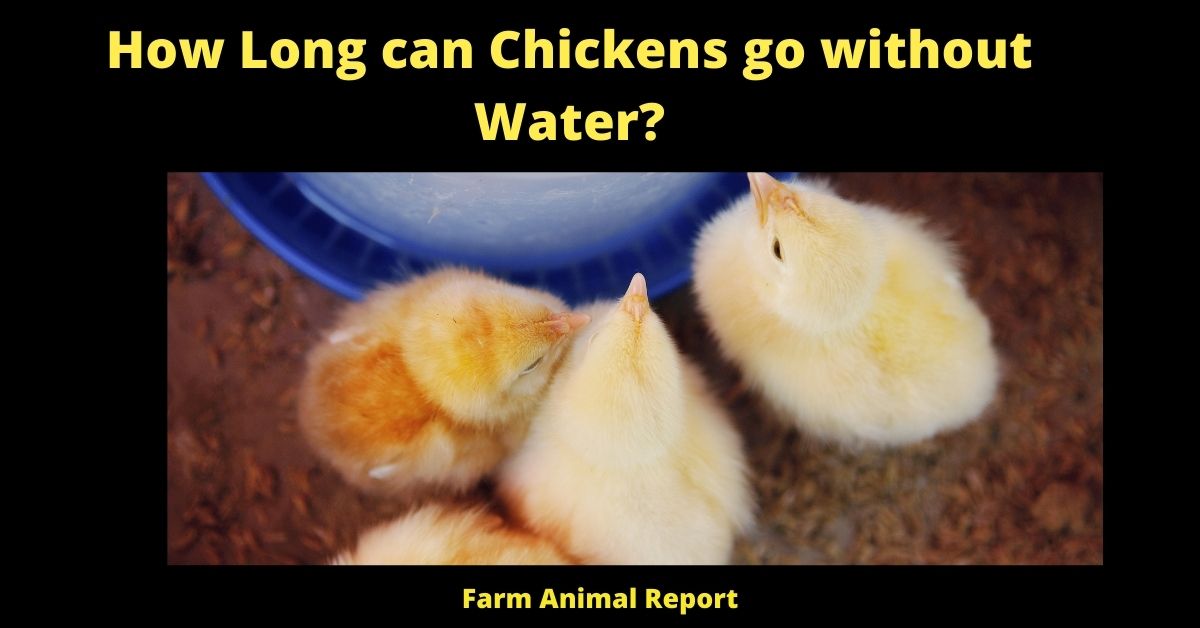
Final Thoughts – How Long can Chickens go without Water?
As you can see, chickens can go without water for quite some time. However, it is important to make sure that they have access to other sources of hydration, such as fresh fruits and vegetables. In addition, if the temperature is hot, you will need to be more diligent about offering your chickens water. If you suspect that your chicken is dehydrated, it is important to take action immediately and offer them cool water to drink. Dehydration can lead to serious health problems, so it is best to prevent by ensuring that your chickens always have access to clean drinking water. Thanks for reading!


